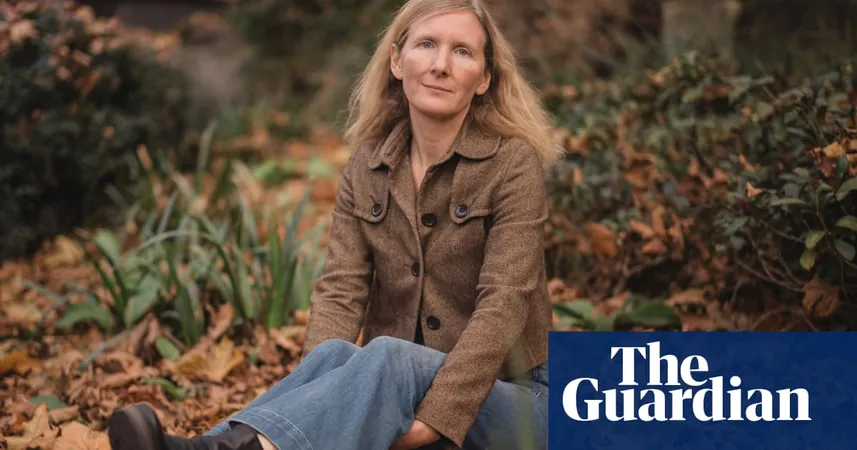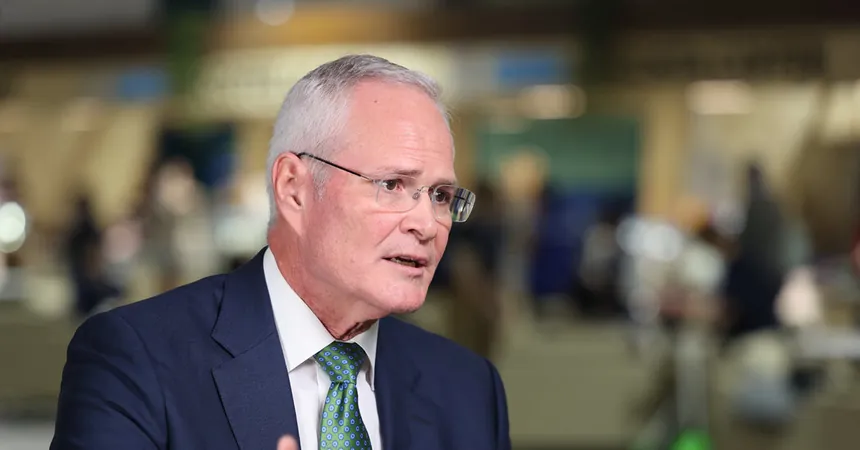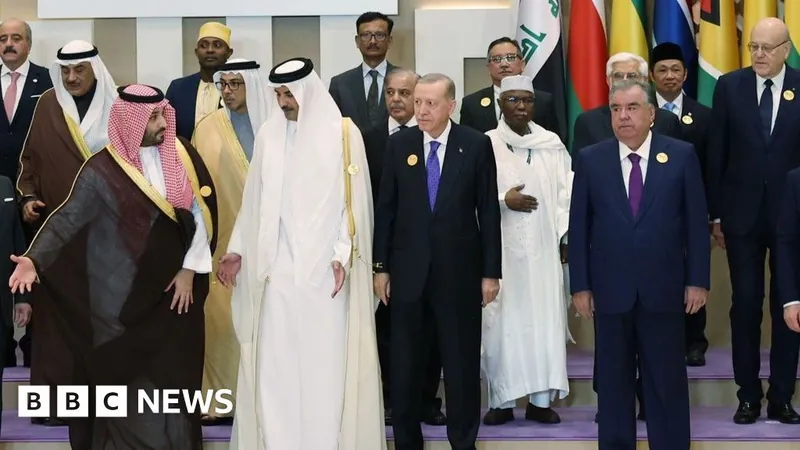
Samantha Harvey: The Surprising Journey of a Non-Astronaut to Booker Prize Glory
2024-11-13
Author: Ling
Introduction
Samantha Harvey, the acclaimed author of the stunning novel *Orbital*, which just clinched this year's prestigious Booker Prize, faced considerable self-doubt during her writing journey. Set aboard the International Space Station (ISS), an orbiting laboratory 250 miles above Earth, *Orbital* introduces readers to the lives of four astronauts and two cosmonauts zooming through the cosmos at a swift 17,500 miles per hour. In the early stages of writing, Harvey felt an overwhelming sense of trepidation. "I am so spectacularly not an astronaut," she chuckled over coffee the morning after the award announcement. "I’m unadventurous, impractical, and reasonably anxious—I would be terrible in space!"
The Creative Revival
However, an unexpected encounter with her unfinished manuscript reignited her creativity. After several months of exploring other ideas, she stumbled upon the dormant document and recognized its unique energy and authenticity. "I thought, 'I shouldn’t be afraid of this. If I can write this from a different perspective than astronauts typically do, maybe there’s something valuable here.'” She decided to push through her fears and embraced the narrative fully.
A Literary Force
Harvey, frequently compared to literary giants like Virginia Woolf and Melville, is the only British writer on the Booker shortlist for this year. With *Orbital*, her fifth novel, she crafts a compelling narrative that manages to capture a sense of earthly nostalgia within a wholly unconventional setting. The novel unfolds over a single day, but in space, where the sun rises and sets every 90 minutes, time flows differently. Each of the book’s 16 chapters aligns with Earth's orbits, intertwining the most ordinary activities—like vacuuming the capsule or monitoring lab mice—with the vastness of the universe around them.
The Space Pastoral
The astonishing beauty of the surroundings is contrasted by mundane inconveniences, like a constantly clogged toilet aboard the ISS. But *Orbital* isn't just a tale of astronauts. It serves as a poignant commentary on Earth itself—a "space pastoral" that explores the beauty and fragility of our planet. "I wanted to write a love letter to Earth, interwoven with a sense of sadness about what we are doing to it," Harvey explains. Her quiet, ethereal presence gives weight to her profound reflections.
A Recluse’s Reflection
Living in a 16th-century house on the Wiltshire-Somerset borders, Harvey describes herself as a recluse, diligently participating in life-sculpture classes and conducting her writing in a "cold, decrepit" room that reflects her unglamorous approach to the creative process. A perennial theme in her work is grappling with profound philosophical questions amidst the chaos of modern life. The author has engaged with existentialism, time, and faith throughout her oeuvre, with her 2020 memoir, *The Shapeless Unease*, echoing the cyclical nature of insomnia and disorientation felt by her characters.
Mental Health and Creativity
Strikingly candid, Harvey reflects on her own mental health challenges that began once she hit 40: "Suddenly, I was finding the world abrasive, too noisy, and overwhelming." Ironically, this internal turbulence sparked a creative burst that allowed her to weave her experiences into *Orbital*, solidifying the theme of disconnection amidst the vast expanse.
Writing During Lockdowns
Although she initiated *Orbital* prior to the pandemic, the bulk of her writing unfolded during the age of lockdowns. To remain grounded, she kept footage from the ISS on loop, finding solace in the isolation of space amidst the tribulations of Earth. "When I zoom out, I feel a sense of peace and beauty that seems untouched by the chaos down here."
A Journey of Discoveries
Contrary to what one might expect, Harvey was not a space enthusiast during her youth. Raised in a working-class family in Kent, her life journey has taken her through a range of influences—from her mother's ghostwriting career to a profound fascination with philosophical pursuits sparked by personal experiences. Readers often grapple with whether *Orbital* exudes optimism or despair, and Harvey acknowledges that it is not for her to decide. "Do I believe we will rise to meet our responsibilities as a society, or navigate our global issues effectively?" she muses, her thoughtful demeanor suggesting uncertainty.
Reflections on Humanity
In *Orbital*, a rocket carrying a new mission to the moon passes the ISS, reflecting Harvey's concerns about the waning era of international collaboration in space exploration. "The beauty and cooperation of humanity are remarkable," she observes. "Yet, whether that will triumph over tendencies toward consumption and self-interest remains a question."
Conclusion
With *Orbital*, Samantha Harvey has not just garnered literary accolades; she has ushered in a new perspective on space travel and its connection to the human condition, crafting a narrative that resonates deeply with our shared experiences here on Earth. Be sure to dive into *Orbital*, a book that might just offer a reflection of your own struggles and triumphs in these uncertain times!





 Brasil (PT)
Brasil (PT)
 Canada (EN)
Canada (EN)
 Chile (ES)
Chile (ES)
 España (ES)
España (ES)
 France (FR)
France (FR)
 Hong Kong (EN)
Hong Kong (EN)
 Italia (IT)
Italia (IT)
 日本 (JA)
日本 (JA)
 Magyarország (HU)
Magyarország (HU)
 Norge (NO)
Norge (NO)
 Polska (PL)
Polska (PL)
 Schweiz (DE)
Schweiz (DE)
 Singapore (EN)
Singapore (EN)
 Sverige (SV)
Sverige (SV)
 Suomi (FI)
Suomi (FI)
 Türkiye (TR)
Türkiye (TR)